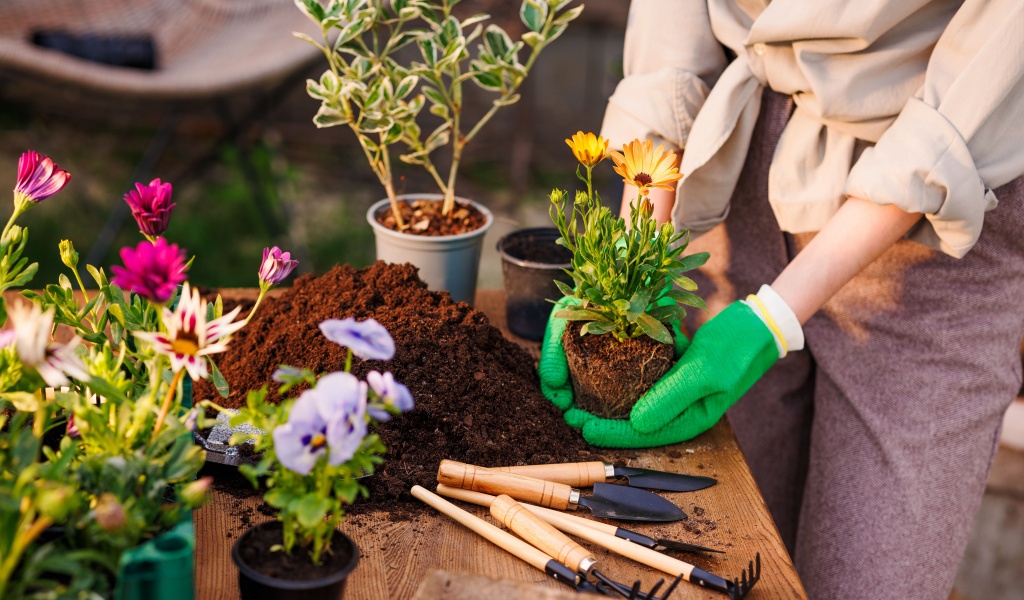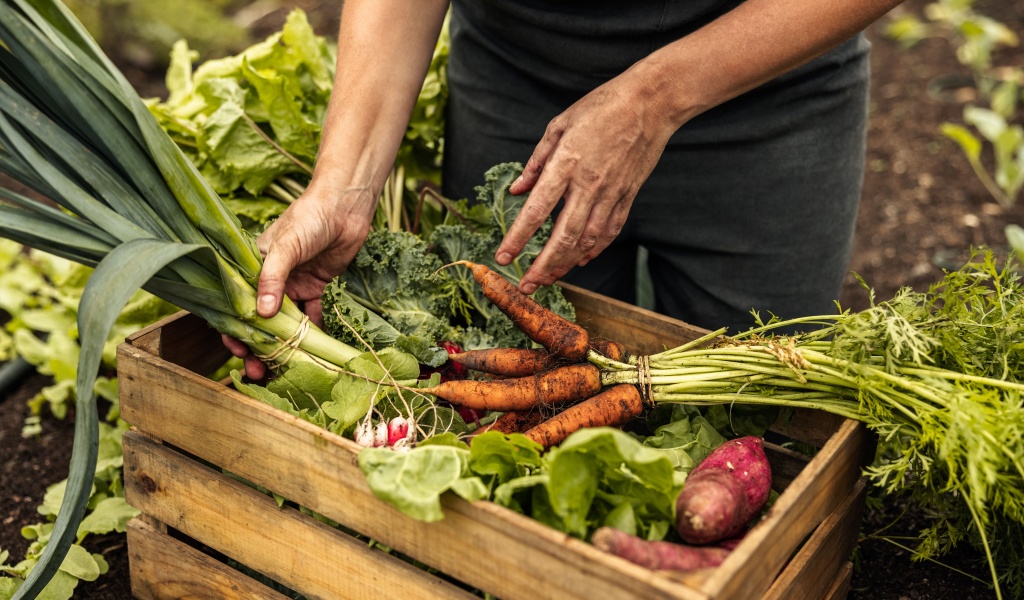Very few activities can invigorate the body and mind as much as gardening can. Not only does gardening help you stay fit, but it’s a great way to connect with your roots, the earth, and those around you while being a part of nature amid beauty, color, and aroma.
There are numerous benefits to making gardening a part of your lifestyle, let’s explore some of them below.

Food AND Exercise
It’s surprising, and quite honestly, a little bit sad, that many people have yet to discover and “unearth” the joys of gardening. When you have people taking elevators to get to the gym and use a treadmill or see people spending fortunes on organic foods, it makes you wonder about the strange paradox of things. Why not combine the two and get your hands dirty by working in the garden? For one, it’s a great way to stay fit; for another, it helps you reap the fruits of your labor in the form of healthy, organic produce.
Humans are not meant to be sedentary creatures; our bodies are designed for moving, and gardening is a great way to get some regular exercise. Gardening is excellent for people who don’t want to sit through seemingly meaningless movements on a treadmill or get bored easily repeating exercise routines. And at the end of it all, you’ll be able to harvest the fruits of your labor – both, literally and figuratively!
Mental Health Boost
Studies have proven how much our bodies and minds relax in a natural setting when interacting with nature. A lot of people who are trying to fight stress and depression tend to find relief in gardening. It can effectively calm the mind by putting it into a similar state to meditation. When gardening, all your senses awaken, and you become more aware of the present moment. You’re so involved in the act that all your focus is concentrated on what you can see, hear, feel, smell, and taste. This leaves no room for you to think about the stresses beyond the garden. Moroever, gardening is an act of meaningful movement where you can see results almost immediately. It’s an empowering sense of achievement to see a basket of flourishing greens or a well-weeded patch.
Gardening also demands that you think, learn, and be creative. Regular brain activity is an excellent way to protect your brain against degenerative diseases like dementia.
Lowers the Risk of Chronic Disease
Gardening is an exercise that can prevent numerous diseases. From digging through the earth and walking to squatting and lifting, gardening is an exercise that can prevent numerous diseases. According to studies conducted by the Centers for Disease Control and Prevention, moderate-intensity level activity for 2.5 hours a week can reduce the risk of type 2 diabetes, heart disease, obesity, high blood pressure, stroke, osteoporosis, depression, and colon cancer.
Calorie Burner
One hour of light gardening can burn about 330 calories—more calories than you would burn by walking at a moderate pace for the same time! If you’re trying to lose weight, gardening can be an excellent activity to burn some calories, and the nice side effect of having home-grown produce can help augment the results as well.
If you’re concerned about calorie intake, then here’s a quick breakdown of how many calories you can expect to burn in one hour of gardening:
- 350-450 calories per hour by raking leaves
- 400 calories per hour by clearing the garden
- 250-350 calories per hour by mowing the lawn
- 200-400 calories per hour by planting flowers
- 120 calories per hour when watering plants
Daily Dose of Vitamin D
It’s interesting to note that humans are more like plants than we tend to realize. Our bodies are capable of photosynthesis, which is the process where plants make their own food with sunlight. Similarly, human skin uses sunlight to make vitamin D, one of the most vital nutrients we need.
Depending on the color of your skin and your clothes, spending half an hour in the sun can produce between 8,000 to 50,000 international units of vitamin D in your body. This vitamin D is essential for so many bodily functions – from boosting the immune system to strengthening bones. Being out in the sun also reduces the risk of developing many types of cancers, multiple sclerosis, and non-Hodgkin’s lymphoma. So, it goes without saying that getting that dose of sunshine in the garden can do wonders for your body!
Immune Booster
Getting your hands dirty is an excellent way to pick up beneficial microbes – in fact, you’re far more likely to pick up good bugs than you would if you took an expensive probiotic pill. You may come across a few creepy crawlies while digging around in the soil, but those aren’t the kind of bugs we’re talking about! The microbes found in soil can boost immunity, fight inflammation, enhance mood, and allow us to absorb nutrients and digest food more effectively.
Final Thoughts
Sadly, today’s generation is so consumed by screens and technology that they hardly find the time to connect with Earth. Perhaps this is why the previous generation was much healthier and happier in old age than the current one. The benefits of gardening can add up to increased longevity—on average, gardeners tend to live longer than non-gardeners!
Getting your hands dirty in gardening can help connect you to the earth—quite literally, and this is called earthing. People now rarely touch the earth with their bare skin, causing a build-up of positive electrons in the body because of exposure to EMFs (electromagnetic fields), and earthing is believed to help combat the side effects. For context, home appliances, Wi-Fi, mobile phones, and lighting can all emit EMFs. On the other hand, gardeners are involved in touching the earth, therefore grounding themselves and terminating this extra charge!
You’re taking control of your health by building physical strength and mental clarity through gardening. From physiological to psychological benefits, gardening cultivates feelings of connection, empowerment, and creative calm. Whether you own a small or large gardening patch, the simple act of getting your hands dirty and connecting to the earth can change your life in all the right ways!




